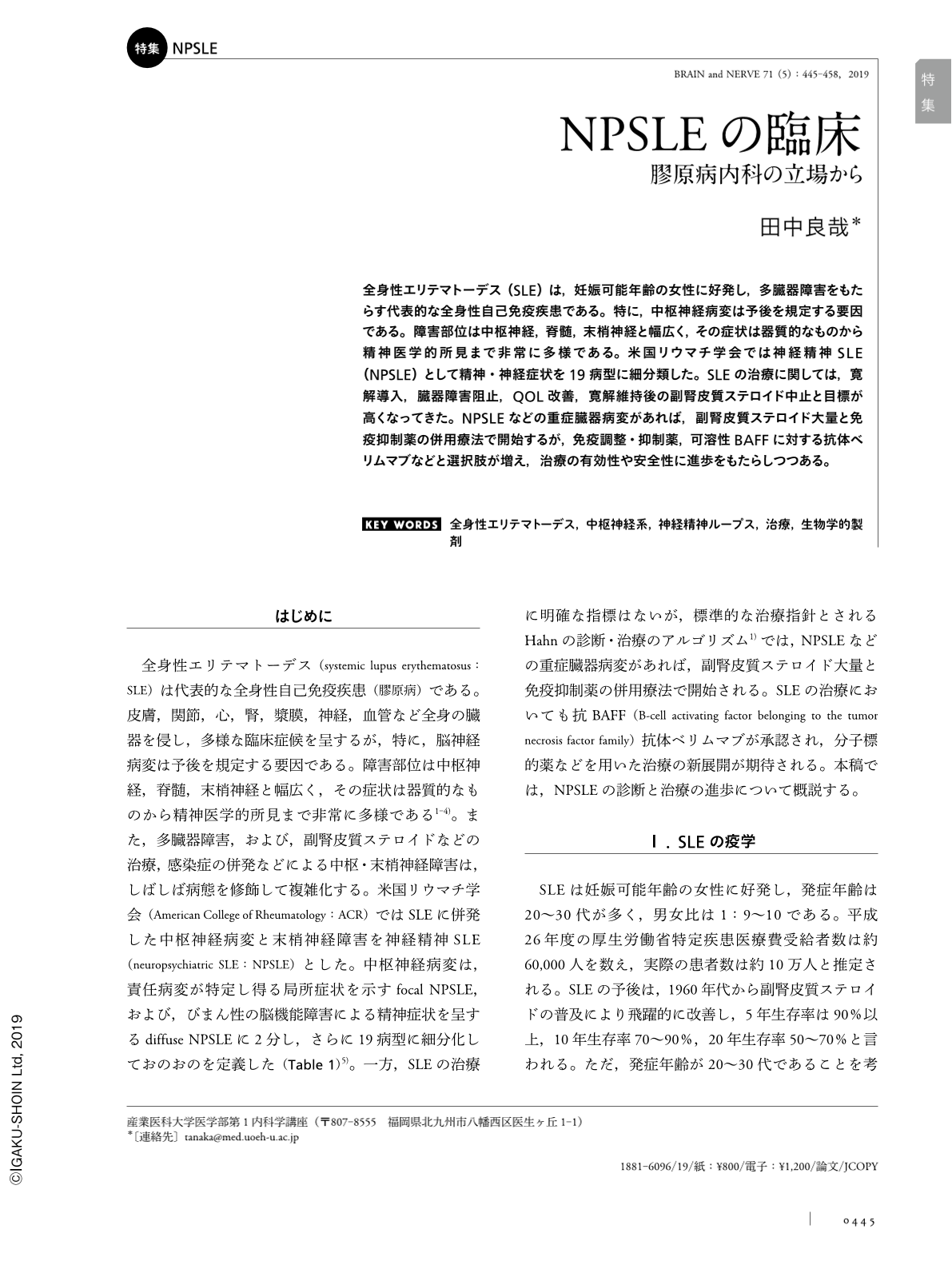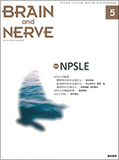Japanese
English
- 有料閲覧
- Abstract 文献概要
- 1ページ目 Look Inside
- 参考文献 Reference
全身性エリテマトーデス(SLE)は,妊娠可能年齢の女性に好発し,多臓器障害をもたらす代表的な全身性自己免疫疾患である。特に,中枢神経病変は予後を規定する要因である。障害部位は中枢神経,脊髄,末梢神経と幅広く,その症状は器質的なものから精神医学的所見まで非常に多様である。米国リウマチ学会では神経精神SLE(NPSLE)として精神・神経症状を19病型に細分類した。SLEの治療に関しては,寛解導入,臓器障害阻止,QOL改善,寛解維持後の副腎皮質ステロイド中止と目標が高くなってきた。NPSLEなどの重症臓器病変があれば,副腎皮質ステロイド大量と免疫抑制薬の併用療法で開始するが,免疫調整・抑制薬,可溶性BAFFに対する抗体ベリムマブなどと選択肢が増え,治療の有効性や安全性に進歩をもたらしつつある。
Abstract
Systemic lupus erythematosus (SLE) is a representative autoimmune disease that is characterized by a variety of manifestations affecting multiple organs. Damage to the central nervous system is one example of how SLE can manifest and cause significant morbidity and mortality. The American College of Rheumatology defines neuropsychiatric SLE (NPSLE) as involving the central and peripheral nervous systems, which can include overt symptoms such as stroke, seizures, and psychosis. Recommendations from the international task force regarding the treat-to-target approach in SLE include targeting remission, preventing further damage, and improving quality of life. When a patient exhibits high disease activity and organ damage, treatment is initiated with a high dose of glucocorticoid and immunosuppressants. Recent innovative approaches to treatment include using biologics and JAK inhibitors, with high expectations of improving SLE management.

Copyright © 2019, Igaku-Shoin Ltd. All rights reserved.


